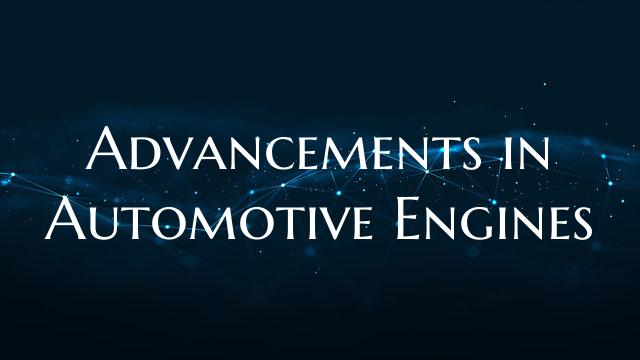Advancements in Automotive Engines
In the dynamic world of automotive engineering, advancements in engine technology play a pivotal role in shaping the industry's future. From enhancing fuel efficiency to meeting stringent emissions regulations and improving performance, automotive engines continue to undergo rapid innovation and development. In recent years, several key advancements have revolutionized the way vehicles operate, bringing forth a new era of efficiency and sustainability.
One of the most notable advancements in automotive engines is the rise of electric and hybrid powertrains. Electric vehicles (EVs) are gaining popularity due to their zero-emission operation and lower operating costs compared to traditional internal combustion engines. Major automotive manufacturers are heavily investing in the development of electric models, with advancements in battery technology leading to improved range and faster charging times.
Furthermore, hybrid engines, which combine traditional internal combustion engines with electric motors, offer a compelling solution for achieving both performance and fuel efficiency. These engines seamlessly switch between power sources based on driving conditions, optimizing efficiency and reducing emissions. Advances in hybrid technology have led to more affordable options for consumers and a broader range of hybrid vehicles on the market.
Another significant advancement in automotive engines is the incorporation of turbocharging and direct injection technology. Turbocharged engines use exhaust gases to compress incoming air, resulting in increased power output and improved fuel efficiency. Direct injection systems precisely deliver fuel into the combustion chamber, enhancing overall engine performance and reducing emissions. These technologies have become increasingly common in modern vehicles, offering a balance between power and efficiency.
Moreover, advancements in engine management systems and software have enabled automakers to fine-tune engine performance and optimize fuel consumption. Electronic control units (ECUs) monitor various parameters such as air-fuel ratio, ignition timing, and throttle response in real-time, allowing for continuous adjustments to improve engine efficiency and responsiveness. Additionally, predictive algorithms and artificial intelligence play a growing role in optimizing engine operations based on driving behavior and environmental factors.
Overall, advancements in automotive engines are shaping the future of mobility by prioritizing sustainability, efficiency, and performance. As the industry continues to evolve, engineers and manufacturers are pushing the boundaries of innovation to create cleaner, more powerful, and technologically advanced engines. With ongoing research and development, the automotive sector is poised to deliver even more groundbreaking advancements in engine technology in the years to come.

